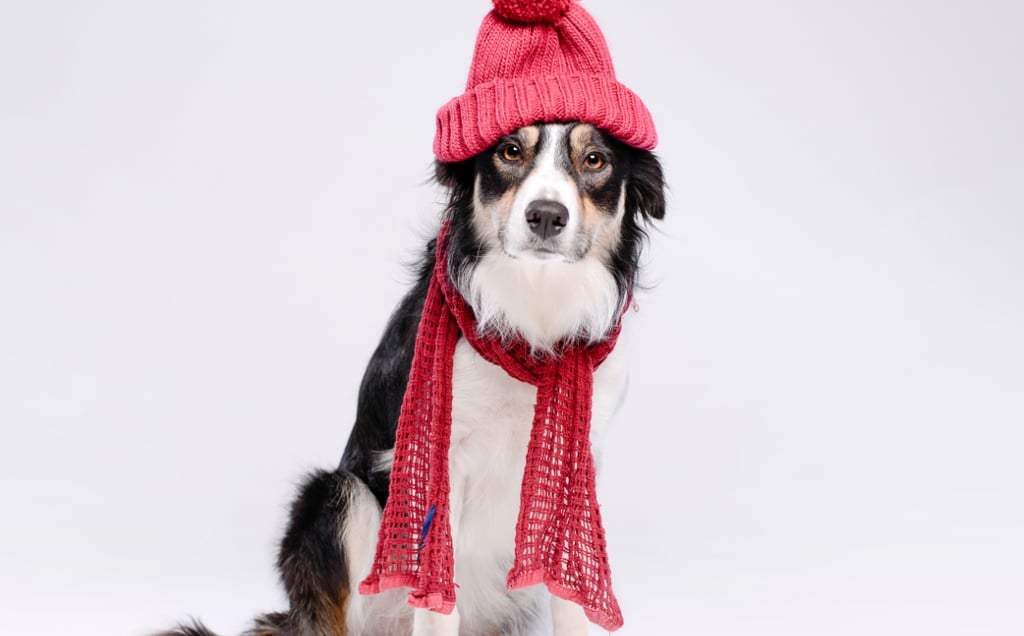Winter pet care: keep dogs and cats warm, healthy & happy
Learn essential winter pet care tips for dogs and cats. Keep your furry friends warm, safe, and healthy with practical advice on nutrition, clothing, exercise, and more.
7/24/20252 min read


When temperatures drop, we naturally reach for blankets, hot drinks, and cozy clothes. But pets feel the cold too — sometimes much more than we realize. Keeping your dogs and cats warm, healthy, and happy during winter is essential for their well-being.
Do pets feel cold?
Yes! Even with fur, many pets struggle in low temperatures. Pets most sensitive to cold include:
Puppies and senior pets
Short-haired breeds (Chihuahua, Pinscher, Siamese cats)
Pets with low weight or health issues
Animals living primarily outdoors
Signs your pet is cold: shivering, curling up, seeking warm spots, cold ears and paws, low energy, or frequent sneezing.
Tip: Persistent symptoms may indicate illness — consult your veterinarian.
Create a cozy home environment
Make winter indoors comfortable without spending much:
Use soft blankets, cushy beds, or heated mats
Keep beds away from drafts and windows
Elevate beds for extra warmth
Close doors and windows during cold hours
Avoid leaving pets outside overnight
Pet clothing: helpful or not?
Clothing can protect pets in winter, especially:
Small or short-haired pets
Elderly or ill animals
Cold outdoor walks
Indoor air-conditioned or unheated spaces
Clothing Tips:
Avoid tight outfits or dangerous fasteners
Watch for discomfort or removal attempts
Never leave wet clothing on your pet
Wash clothes regularly
Give short breaks without clothing
Winter nutrition tips
Pets may burn more calories in cold weather, but proper guidance is key:
Do not increase food without veterinary advice
Monitor weight changes and consult a vet if needed
Provide water at room temperature
Add wet food or high-moisture meals for pets who drink less
Balanced nutrition strengthens immunity — crucial for winter wellness.
Bathing your pet in winter
Hygiene is still important:
Use warm water in a closed environment
Dry completely with towel or blow dryer
Bathe during the warmest part of the day
Reduce frequency (every 15–20 days may suffice)
Use shampoos suitable for sensitive skin
Pro tip: Use pet salons with winter-friendly facilities to avoid cold-related illnesses.
Exercise & Indoor activities
Movement is crucial for warmth, mental stimulation, and health:
Walk pets during warmer parts of the day
Dress sensitive pets appropriately
Replace outdoor walks with indoor games during extreme weather
Use interactive toys or treat-based hide-and-seek games
Watch for health concerns
Winter can worsen certain conditions. Contact a vet if you notice:
Persistent cough or nasal discharge
Fever or lethargy
Difficulty moving (especially older pets)
Respiratory, joint, and skin problems can flare in cold weather.
Special care for cats
Cats often hide during winter. Keep them safe and cozy:
Provide warm, elevated beds and blankets
Prevent access to unsafe hiding spots (behind appliances or motors)
Ensure water is easily accessible
Extra tip: Place water fountains strategically to encourage hydration
Quick winter pet care checklist
✔ Watch for cold signs: shivering, seeking warmth
✔ Prepare cozy spaces with blankets and elevated beds
✔ Use clothing if suitable
✔ Maintain balanced nutrition and fresh water
✔ Reduce but don’t skip baths
✔ Encourage indoor or outdoor activity
✔ Visit the vet if symptoms appear
✔ Pay extra attention to puppies, seniors, and ill pets
Final thoughts
Winter can be challenging, but small adjustments ensure pets stay safe, warm, and happy. Caring for your furry friends in colder months is both love and responsibility.
Share this guide with other pet owners and help more animals enjoy a safe, warm, and happy winter!
Health
Tips for a healthy and balanced life.
© 2025. All rights reserved.
Well-being
Privacy Policy
Terms and conditions
